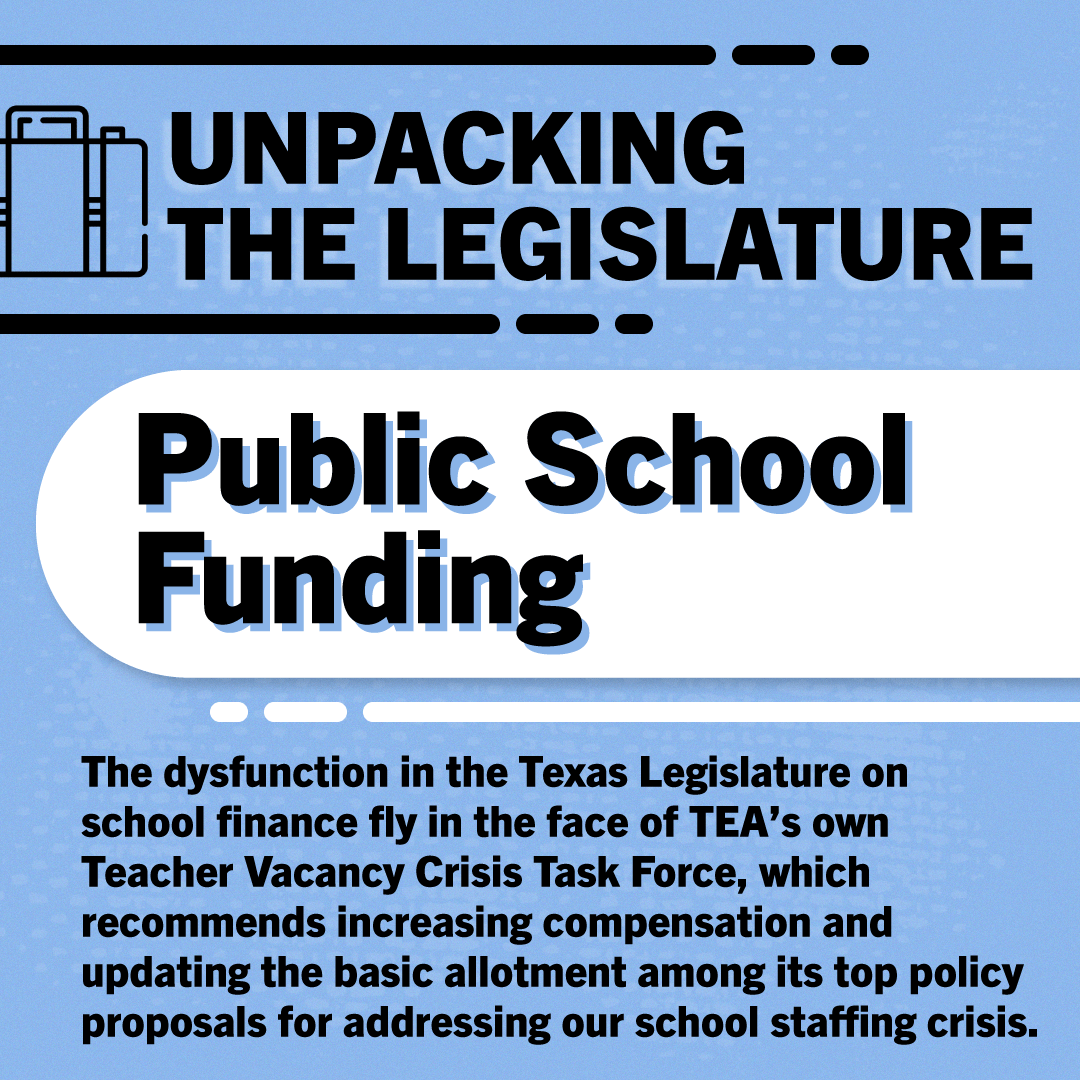
The 88th Legislature is (mostly) over. Do you know how your representative voted on public education?
Find your rep | See how they voted | Contact your rep
With a $33 billion surplus available, we had high hopes. High hopes that the Texas Legislature would step up and deliver for students, educators, and school employees ahead of the upcoming school year.
Yet, here we are, one regular session and two special sessions later with no basic allotment increase and no guaranteed pay raises for teachers and school staff.
Public school districts across this state have squeezed every last dime to try to give their employees a small raise — with no support from the state.
To do so, they are eliminating lunchroom monitors, reducing counselors, and laying off other support staff positions that make our schools run smoothly for students. They are closing cafeterias, arts programs, and CTE programs. They are passing deficit budgets and facing financial ruin.
Below, we’ve gathered key public education votes from the regular legislative session so you can see where your state representatives stood.
Step 1: Find your representative
Not sure who represents you in the Texas Legislature? All you need is your address, and you can look up your representative online.
Step 2: See how they voted
Once you know your representative, you can see how they voted on a variety of important public education matters below. Legislators are listed in order of House District. For each, you’ll see how they voted on:
Legend

Texas House of Representatives
Step 3: Contact your representative
88th Legislature in Review
Want more information on what did (and didn’t) pass in the 88th Legislature? We’ve unpacked it all for you. Read through our recaps of top issues below.








